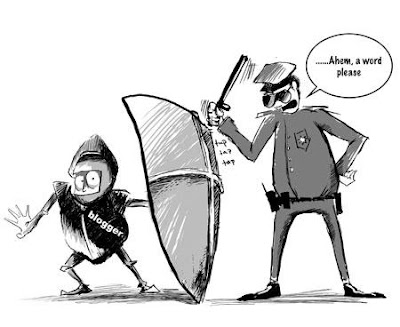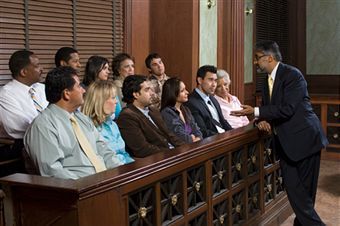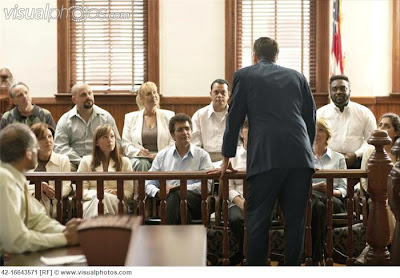Read about the dangers of do-it-yourself estate planning from this HG.org article written by Deborah Sexton.
Don’t fall victim to the concept of do-it-yourself (DIY) estate planning. Sure, the idea of saving money that would be spent having an attorney draft your estate plan is alluring, but is it worth it?
Everyone likes to save money, but the truth of the matter is that you may end up costing your family more money than you save. A DIY approach may work well for constructing a backyard deck or renovating a bathroom, but an effective, well-crafted estate plan is not something that can be accomplished with just a book, a dream and an Internet connection, and here is why:
1. Almost all DIY estate planning kits are created on a one-size-fits-all principle. As a result, these kits use standard forms that require you to fill in the blanks. While it may sound easy, the problem is that these forms may result in loopholes that others could use to their advantage, destroying the plan you had in mind.
2. The tax laws are constantly changing and a DIY kit may not be keeping up with those changes. This means that your survivors may lose out on tax savings that a qualified estate planning attorney would be able to secure for them.
3. Using a DIY kit to plan your estate often results in people granting too much power and control to another party. They create a power of attorney that he or she doesn’t fully understand, and they do so simply because they are not aware that other, more appropriate alternatives exist.
Source:http://www.hg.org/article.asp?id=29373
Wednesday, December 26, 2012
Tips on Becoming a Lawyer
Do you want to become a lawyer? EHow.com shares some basic tips on how to become a lawyer.
 If you want to become a lawyer, you may find that the process is overwhelming. The process of becoming an attorney is long and requires a great deal of paperwork and schooling. There are many things that you can do in order to ease the process and successfully become an attorney.
If you want to become a lawyer, you may find that the process is overwhelming. The process of becoming an attorney is long and requires a great deal of paperwork and schooling. There are many things that you can do in order to ease the process and successfully become an attorney.
Do Well In School
• In order to become a lawyer, you must receive both a Bachelor's degree and a Juris Doctor degree. This means that you must attend an undergraduate school and law school. Doing well in school requires more than just being at the top of your class. It also requires that you take advantage of courses and opportunities that are available in school. You may get an undergraduate degree in any major that interests you, but consider taking classes in logic and writing. Writing is the most important aspect of being an attorney because attorneys spend significant time every day writing. A logic course is beneficial because a lawyer must use logical reasoning principles every day and will be helpful when you attend law school. Law school does not require students to choose a major, and much of the curriculum is left up to the students, so take classes that interest you and that you can apply yourself to do the best that you can. When you are in law school, you must be sure to take advantages of all opportunities that you can. Join clubs and societies that interest you in order to expose yourself to different areas of law and different view points concerning the law.
Take Advantage of Experiential Education
• Experiential learning is incredibly important for aspiring attorneys, however it is not as prevalent among law students as one would think. While in college, take advantage of internships that are available for credit. See if you can intern with a law firm. Not only will this give you a good idea of whether you would like to do this as a profession, but it will also allow you to observe and gain valuable insight that you can apply in your career. While in law school, take advantage of any clinics that are available and that interest you. Many law schools have clinical programs focusing on family law, tax law, criminal law, and employment law. These types of programs give you valuable practical experience that employers look to when considering potential employees.
Stay Positive and Remain Focused
• The process of becoming an attorney is long and it is easy to lose your focus. In order to go to law school you have to go to college, register for the Law School Admission Council and the Law School Admission Test. Remember that everything that you do has a purpose, and you are doing it so that you can become an attorney. Further, law school is difficult because it is a completely new experience and teaching method for most students. This becomes apparent in the first year of law school. Never forget why you are there and why you want to be an attorney. Do not become overly discouraged when things happen. Keep things in perspective, remember that lawyers do not win every case, motion, and appeal. Overcoming adversity is the way you persevere as a lawyer.
Complete All Paperwork Early
• There are many things you must do in order to become an attorney, and most if it requires considerable paperwork. You must apply to college and to law school. You must register for the Law School Admission Council and register to take the Law School Admission Test. You must sign up to take the Multistate Bar Examination, as well as the bar exam for your particular jurisdiction. These applications, particularly the bar exam application, take a considerable amount of time. For instance, for most bar exam applications, you must submit a great deal of information, including driving records and criminal background histories. It takes time to gather the information and you do not want to cut yourself short in doing this because it could cost you more money for filing late, or it could delay your ability to enter school or take the bar exam.
Take the Bar Exam Seriously
• The bar exam is not easy. The information necessary to pass the bar exam is voluminous and diverse. You must begin studying as early as practical, which is generally in the beginning of your second semester of your last year in law school. Sign up for a course that will help coach you on how to pass the bar exam and adhere as best as you can to its recommendations. Studying for the bar exam is a several month process and you have to take it seriously, but do not let it consume your life. Figure out the balance you need to preserve good mental health while learning as much as you can.
Source: http://www.ehow.com/list_6519879_tips-becoming-lawyer.html
Tuesday, December 18, 2012
Bankrupt? How to keep your assets
Chapter seven of the United States Code governs the liquidation of assets in consumer bankruptcy law. Under this law, properties and assets of those who petitioned for bankruptcy become “properties of the state.” This includes real and personal property. And under this law, a court-appointed trustee will determine assets that can be sold for the benefit of the creditor.
 |
| Image credit: guardian.co.uk |
This risk of losing assets and properties is a big threat for those in bankruptcy. However, bankruptcy litigation attorneys, like Evan Granowitz and John W. Kozyak, contend that one does not have to lose everything while in economic failure. Legal representatives ensure that the assets of the debtor are protected from seizure and sale. This can be done by declaring the assets as exemptions from the bankruptcy estate as per federal and state law. In addition, while the bankruptcy code liquidates properties, it also recognizes the basic needs of the debtor, hence it gives property exemptions.
Claiming property exemptions
Debtors must provide a list of their properties and their fair market value, description of the properties to be exempted, and the laws that apply to these properties. This list allows the bankruptcy court to evaluate the case. If no one objects to the exemption list within 30 days, the bankruptcy court cannot use the properties listed as payment to creditors.
 |
| Image credit: info.legalzoom.com |
Homestead exemption
Homestead exemption applies to the property which serves as residence. Under this rule, debtors can seek immunity from forced sale of their homes. Different states have different degrees of protection under homestead exemption laws; however, the federal homestead exemption is $21,165.
Automobile exemptions
Motor vehicle exemptions protect a certain amount of equity on vehicles. The federal exemption for a car is $3,450. If all of the equity is covered by the car exemption law, then the trustee cannot liquidate the asset.
 |
| Image credit: jacksonvillebankruptcylawyerblog.com |
Retirement Assets
Retirement funds, including pensions, profit sharing, deferred compensation plans, stock bonus plans, and Individual Retirement Accounts, have immunity from seizure. These assets are protected as they are one of the most important assets to the debtor.
Bankruptcy should not be feared and one should not lose everything to it. With proper knowledge, a person can keep his assets and properties despite the threats of liquidation.
For more, visit this site.
Sunday, December 16, 2012
What to expect from your lawyer
Many people do not have their own lawyers to represent them in court. Some only hire a legal representative when the need arises, hence many people do not know what to expect from an attorney-client relationship.
Lawyers owe certain duties to their client. Such duties include the duty of confidentiality, duty to avoid conflicts of interest, duty to represent the client, and duty to provide competent representation.
The duty of confidentiality simply means that lawyers ought to keep everything that have transpired and will transpire between his or her client a secret. Information about the client’s affairs must be confidential and must not be used by other people unauthorized by the client.
 |
| Image credit: privatetrustees.com |
To avoid conflict of interest, an attorney must see to it that the clients he represents do not conflict with the interests of each other. This, however, does not mean that a lawyer cannot represent someone whose business is in competition with the other client. Avoiding conflict means that if a lawyer negotiates a lease for Client X, he cannot represent Client Y who wants the same space.
 |
| Image credit: ciminellilaw.com |
Representing the client means that lawyers should always represent the interests and point of view of their clients. But it does not mean that they can condone fraudulent actions.
 |
| Image credit: mamaliz.com |
Last but not the least, lawyers should provide competent representation. They should make the client aware if they have the experience and expertise to represent the latter. If not, the lawyers should refer an attorney who could best represent the client.
More about Evan Granowitz and other related topics are available on Myspace.
Wednesday, December 12, 2012
The court asks: Are bloggers journalists?
Are bloggers journalists? This intriguing question turned out a weighty legal issue when a Cook County case in August last year spurred debate on whether bloggers must also be protected by the Shield law—a legal protection that prevent journalists from revealing confidential sources or even give up related materials used in a story.
 |
| Image credit: whiteflash.com |
What happened with TechnoBuffalo.com, a California-based website brought to court for publishing an image of a smartphone manual before it was even released in public, is only a precedent of other similar cases that cropped up in many parts of the country. The website maintained that the image was leaked by an anonymous tipster and they ought to be given shield law protection. However, the court had another opinion. Cook County Circuit Judge Michael Panter ruled that the website does not qualify as a "news medium" and its bloggers as "reporters." Four months later, Judge Marco Hernandez of Oregon declared that Crystal Cox, a blogger from Montana who sued for a defamation case, is also not a journalist. In June this year, another blogger from Washington State named Shelle Hale was sued for posting defamatory statements against a company’s products. Hale alleged that the information came from anonymous sources. She later lost the case; her demand for shield law protection was rejected.
 |
| Image credit: gracekeyworth.wordpress.com |
In view of the recent popularity of social media, shield law protection for bloggers remains among the complex legal issues in the country today. Until the day a legal framework is brought to differentiate traditional media work from blogging, this question remains: Are bloggers considered journalists?
 |
| Image credit: blog.careers.govt.nz |
More related topics from Atty. Evan Granowitz are available on this Twitter page.
Tuesday, December 11, 2012
Give Yourself an Easier Time of Making a Will
This article from HG.org shares the first step in estate planning, which is the act of collecting information.
Beginning the estate planning process can be a task that seems overwhelming. If you’re having trouble getting started, one of the easiest ways to begin is to collect some simple information you will need to write a will.
The act of collecting this information will often lead to thinking about inheritance decisions and other questions that are vital to the estate planning process. Additionally, you will need to have this information at hand when you actually sit down to make your plan.
 Here are the types of information you will need:
Here are the types of information you will need:
Your Property
A major part of estate planning is dealing with all your possessions and how you want to pass those possessions on after you die. You need to account for everything you own, including real estate, personal property and investments, as well as anything you still owe money on. Both debts and assets need to be accounted for prior to creating a will or other estate planning documents.
Your Representatives
Another key part of estate planning is choosing people whom you trust to manage your affairs should the need arise. You will need to select someone to represent your estate after you die, as well as one or more people to represent your interests should you become unconscious or medically incapacitated. You can choose both individuals and professional organizations, such as banks or trust companies, but you should think about who you would want to serve as your representative in emergency situations.
Source:http://www.hg.org/article.asp?id=29268
Beginning the estate planning process can be a task that seems overwhelming. If you’re having trouble getting started, one of the easiest ways to begin is to collect some simple information you will need to write a will.
The act of collecting this information will often lead to thinking about inheritance decisions and other questions that are vital to the estate planning process. Additionally, you will need to have this information at hand when you actually sit down to make your plan.
 Here are the types of information you will need:
Here are the types of information you will need:Your Property
A major part of estate planning is dealing with all your possessions and how you want to pass those possessions on after you die. You need to account for everything you own, including real estate, personal property and investments, as well as anything you still owe money on. Both debts and assets need to be accounted for prior to creating a will or other estate planning documents.
Your Representatives
Another key part of estate planning is choosing people whom you trust to manage your affairs should the need arise. You will need to select someone to represent your estate after you die, as well as one or more people to represent your interests should you become unconscious or medically incapacitated. You can choose both individuals and professional organizations, such as banks or trust companies, but you should think about who you would want to serve as your representative in emergency situations.
Source:http://www.hg.org/article.asp?id=29268
Sunday, December 9, 2012
Protecting the tenant: Red flags of renter rights breach
 |
| Image credit: anevyhikysic.net76.net |
As provided for by statutory laws, the course of a lease contract should be smooth sailing all the way for the tenant. If there are issues that are encountered, most of them should be minor in nature and should be easily settled with common sense and diplomatic dialogue. Less frequently, though, some issues may seriously threaten the renter’s enjoyment of the rental—or worse, the renter’s ability to stay in the property.
In the event of the following cases, employing the services of lawyers, like Cheryl Chadwick, Evan Granowitz, and Ellen Kaufman Wolf, is the most effective way to preserve the following tenant rights:
1. Unreasonable forcible eviction. If the landlord serves a termination notice without any justifiable reason—especially if this is done without undergoing proper court procedures—then tenants may fight back by bringing the matter to court. No matter how seemingly valid a landlord’s case may be against a tenant, these aren’t legal justifications to take matters into one’s own hands.
 |
| Image credit: nicerenter.org |
2. Discrimination. Surprisingly, the Department of Housing and Urban Development (HUD) still receives over 10,000 discrimination complaints in a year. If the HUD investigates and finds a reasonable cause to believe that the landlord is discriminating the tenant, then the latter may be sued for the damages that the tenant has suffered.
 |
| Image credit: slapupsidethehead.com |
3. Property is damaged and the landlord refuses to make necessary repairs. Potentially fatal damages may come in seemingly innocuous cases, such as a broken window pane, a dysfunctional heating system, and a leaking ceiling. If these have been brought to the landlord’s attention yet no action has been done, then legal action may be taken.
 |
| Image credit: chicagoeviction.com |
For more information, visit WolfGroupLA.com.
Wednesday, December 5, 2012
Five reasons why your lawyer is not talking to you
Attorney Evan Granowitz of Wolf Group LA specializes in a variety of areas, including breach of contract, unfair competition, business torts, bankruptcy, and class action disputes.
 |
| Image credit: lawyeronaleash.com |
It is understandable when you, as a client, complain when your lawyer fails to show up to an appointment or doesn’t return your phone calls. However, there are times when clients have something to do with this kind of behavior. Here are some possible, straightforward reasons why your lawyers are not showing up or why they’re not talking to you:
 |
| Image credit: happierhealthcare.com |
1. You may be too demanding and rude. If you think your lawyers are magicians who can do everything with a single whip of a wand, then reconsider this connotation to nurture a better working relationship.
2. You may be arrogant and inattentive. Although things have been explained to you several times already, you still ask the same questions repeatedly, all because you don’t like the answers given to you. As a result, your lawyer would rather not talk you than hear you ask the same questions over and over again.
3. You may be forgetting that you are the client. When you let other people deal with your lawyers, chances are you’re not hearing from them. Lawyers have no obligation to other people except to you—the clients.
4. There are no new developments to tell. The progress of legal cases needs time. So does your lawyers. When you don’t hear from them every day, it’s because they’re working on your case or something much more important than your concerns.
5. Your lawyers have personal issues. Some lawyers have ranging personal issues that result to this lack of diligence for work.
 |
| Image credit: kentlawsociety.com |
You have entrusted your time and money on your lawyers to deal with some vital aspects of your life for your sake. Maintaining a good bench mark of a harmonious relationship with them leads to favorable legal decisions.
Learn more about the law from this Facebook page.
Wednesday, November 28, 2012
Congressman proposes 2-year ban on bills about Internet
This CNN.com article talks about a congressman’s proposition of a two-year ban on all new federal legislation concerning the Internet.
(CNN) -- In an unusual step, a U.S. congressman is proposing a two-year ban on all new federal legislation regulating the Internet. Rep. Darrell Issa, a Republican from California who has been an advocate for Internet freedoms, has posted online a draft of his legislation, the Internet American Moratorium Act of 2012. The bill would "create a two-year moratorium on any new laws, rules or regulations governing the Internet."
Issa first posted the complete text of the bill Monday on Project Madison, the nickname for a crowdsourcing platform that allows citizens to amend individual passages of legislation by adding or striking language. On Tuesday, he posted a link to the bill on Reddit, the social news site, where users quickly voted it to the top.
"Together, we can make Washington take a break from messing w/ the Internet," Issa said on Reddit, where he also invited users to suggest changes to the proposed bill. He said he will begin taking questions about it from Reddit users at 10:30 a.m. ET Wednesday.
Issa is one of the more tech-fluent members of Congress and was an outspoken critic of the Stop Online Piracy Act, which would have penalized websites that host pirated content. That bill died this year amid near-unanimous opposition from the technology industry.
Initial reaction on Reddit to his proposed moratorium was mixed. Some users were confused about what point Issa was trying to make, while others saw the move as a stunt.
"I have a problem with legislation that preemptively ties your hands for years at a time. You can't know what the internet or society will look like in six months, let alone two years, and making it harder to respond to emerging threats or opportunities is an abdication of your responsibilities as a member of Congress," wrote one Reddit user. "This just seems to me to be more cheap political theater, along the lines of Grover Norquist's 'We will never ever ever raise taxes for any reason' pledge."
"The answer is NOT to ban new regulation. We need regulation," another said. "But, I don't believe ANYBODY in Congress has the vocabulary, is intelligent in knowing how the internet or computers work, or has the foresight to put current trends and future technologies together in a context to create those new regulation that protect the internet and it's users/consumers." Issa's Reddit post had drawn more than 900 comments by late Tuesday afternoon. Leslie Horn, writing for Gizmodo, also dismissed Issa's idea.
"Open internet? That's a good thing. But a law that keeps congress from governing? That's not a good thing -- the internet is a big place, and the language of this law is very broad," she wrote. "As it stands now, IAMA is just a discussion draft, meaning it will be a very long time before it's even close to a vote. And while we're for an open internet, a blanket ban is a bad idea. Let's think about this one a little more, Rep. Issa."
When asked why the congressman introduced the bill, a spokesman for Issa told CNN, "After SOPA and PIPA (the Senate's similar Protect Intellectual Property Act), it became very clear that we needed a cooling-off period to figure out a better way to create policy that impacts Internet users, job creators and all Americans."
The spokesman, who asked not to be named, declined further comment Tuesday.
Source: http://www.cnn.com/2012/11/27/tech/web/issa-reddit-internet-bill/index.html?iref=allsearch
Monday, November 26, 2012
Ambassador Rice to meet with lawmakers on Libya
This article by Dan Lothian, a CNN correspondent, reports the plan of U.S. Ambassador to the United Nations Susan Rice to hold a meeting about Libya at the Capitol Hill.
Washington (CNN)- After facing criticism from Republican lawmakers surrounding her characterization of the September 11, 2012 attack on the U.S. mission in Benghazi, Libya, U.S. Ambassador to the United Nations Susan Rice will hold meetings on Capitol Hill about Libya, an administration official said Monday. Rice will meet with Sens. John McCain of Arizona, Lindsey Graham of South Carolina, and Kelly Ayotte of New Hampshire on Tuesday morning, Ayotte told CNN. She said Rice's staff contacted her office about setting up the meeting.
-Follow the Ticker on Twitter: @PoliticalTicker
As to what she expects out of the meeting, Ayotte said, "I think a big part of it will be about her representations of what happened at Benghazi."
Acting CIA director Mike Morrell will attend meetings later this week, a source said.
McCain, Graham, and Ayotte led the criticism of Rice after her television appearances days after the September attack, which killed four Americans, including U.S. Ambassador to Libya Christopher Stevens. They and other Republicans said they would block the nomination of Rice, should she be advanced by President Barack Obama to replace Secretary of State Hillary Clinton, who has said she will leave her post when a replacement is ready to be installed.
Later in the week, Rice will meet with Sen. Susan Collins of Maine, the top Republican on the homeland security committee, which is investigating the Benghazi attack. Collins has not been as critical of Rice as McCain, Graham and Ayotte but has said Rice needs to explain what happened.
This weekend, McCain expressed more openness to her potentially filling that post, saying he would "give everyone the benefit of explaining their position and the actions that they took. I'd be glad to have the opportunity to discuss these issues with her." Rice has not been offered the position but is suspected to top the list of possible successors. At a press conference after his re-election, Obama called McCain and Graham's criticism of Rice "outrageous," adding that if they "and others want to go after someone they should go after me."
The ambassador said she was using de-classified talking points that did not reference the attack as a pre-meditated terror attack, and the spokesman for the Director of National Intelligence later said those talking points were prepared by the intelligence community, and not modified by other governmental agencies.
"When discussing the attacks on our facilities in Benghazi, I relied solely and squarely on the information provided to me by the intelligence community. I made clear that the information was preliminary," Rice told reporters last Wednesday.
McCain charged on the floor of the U.S. Senate hours before Obama's post-election press conference that "this president and this administration has either been guilty of colossal incompetence or engaged in a cover up, neither of which are acceptable to the American people."
Republicans have questioned why the administration used Rice as their spokeswoman, rather than an official more closely involved with the investigation, as well as why the U.S. timeline included a protest surrounding a controversial anti-Islam web video, which now appears to have not been a factor.
On Monday, Sen. James Inhofe of Oklahoma, a GOP member of the Foreign Relations Committee who recently said Rice was "not fitting" to be Secretary of State in part because of comments on the attack, appeared to shift his views about Rice.
Inhofe said Rice may have been "thrown under the bus" because she wasn't given the full details of what happened before going on television.
"I assumed she had full knowledge of everything that went on," Inhofe said about his initial criticism of Rice. "I'm not at all convinced of that now. I think she very well could have been thrown under the bus."
Inhofe said Monday he has had no request to meet with Rice at this point but that he would be glad to meet with her.
Source: http://politicalticker.blogs.cnn.com/2012/11/26/ambassador-rice-to-meet-with-lawmakers/?iref=allsearch
Monday, November 19, 2012
Twinkie maker Hostess to go into mediation with workers' union
This Guardian.co.uk article discusses the business issues faced by Hostess Brands, the makers of Twinkies.
Hostess had asked for permission to liquidate the company but US bankruptcy court urged firm to resume talks with BCTGM
Troubled Twinkie maker Hostess Brands and the unions representing its striking workers agreed to start mediation hearings on Tuesday at the urging of a bankruptcy court judge.
Management at the Twinkies and Wonder Bread manufacturer sought permission to liquidate the company on Monday, but was urged by the judge to mediate in private. Mediation will begin on Tuesday. If talks collapse, lawyers for Hostess will be back in court to seek approval to shut down the 82-year-old company.
Hostess filed for bankruptcy for the second time in January and had been negotiating cuts with its unions. Those talks fell apart last week as the company's management blamed the union, and the Bakery, Confectionery, Tobacco Makers and Grain Millers (BCTGM) union in turn blamed mismanagement. The union also balked at a fresh round of pay cuts it said would cut wages by 27-32%.
Judge Robert Drain of the US bankruptcy court asked attorneys to mediate.
"To me, not to have gone through that step leaves a huge question mark over this case, which I think – I may be wrong – but I think will only be answered in litigation. And that's no one's desired outcome," the judge said.
Alongside labour disputes, Hostess, which is based in Irving, Texas, has struggled for years with massive debts, management turmoil, rising commodity costs and America's changing tastes.
After the maker of Twinkies, Ding Dongs and Ho Ho's filed for bankruptcy in January, it brought on CEO Greg Rayburn as a restructuring expert to work on renegotiating contract with labour unions.
In a filing with the court, BCTGM said it had agreed to "significant labor concessions" with the company when Hostess first filed for bankruptcy in 2004. The company had pledged to reinvest the money saved into the business, according to BCTGM, but instead emerged from bankruptcy with $773m in secured debt, over $100m more than when the case was filed. Six management teams in the last eight years have compounded Hostess' woes, according to the union.
Last week, Rayburn rejected calls for renegotiating contracts with BTGCM. Hostess management had reached agreement with other unions, including the Teamsters.
Source: http://www.guardian.co.uk/business/2012/nov/19/twinkie-hostess-mediation-union
Hostess had asked for permission to liquidate the company but US bankruptcy court urged firm to resume talks with BCTGM
Troubled Twinkie maker Hostess Brands and the unions representing its striking workers agreed to start mediation hearings on Tuesday at the urging of a bankruptcy court judge.
Management at the Twinkies and Wonder Bread manufacturer sought permission to liquidate the company on Monday, but was urged by the judge to mediate in private. Mediation will begin on Tuesday. If talks collapse, lawyers for Hostess will be back in court to seek approval to shut down the 82-year-old company.
Hostess filed for bankruptcy for the second time in January and had been negotiating cuts with its unions. Those talks fell apart last week as the company's management blamed the union, and the Bakery, Confectionery, Tobacco Makers and Grain Millers (BCTGM) union in turn blamed mismanagement. The union also balked at a fresh round of pay cuts it said would cut wages by 27-32%.
Judge Robert Drain of the US bankruptcy court asked attorneys to mediate.
"To me, not to have gone through that step leaves a huge question mark over this case, which I think – I may be wrong – but I think will only be answered in litigation. And that's no one's desired outcome," the judge said.
Alongside labour disputes, Hostess, which is based in Irving, Texas, has struggled for years with massive debts, management turmoil, rising commodity costs and America's changing tastes.
After the maker of Twinkies, Ding Dongs and Ho Ho's filed for bankruptcy in January, it brought on CEO Greg Rayburn as a restructuring expert to work on renegotiating contract with labour unions.
In a filing with the court, BCTGM said it had agreed to "significant labor concessions" with the company when Hostess first filed for bankruptcy in 2004. The company had pledged to reinvest the money saved into the business, according to BCTGM, but instead emerged from bankruptcy with $773m in secured debt, over $100m more than when the case was filed. Six management teams in the last eight years have compounded Hostess' woes, according to the union.
Last week, Rayburn rejected calls for renegotiating contracts with BTGCM. Hostess management had reached agreement with other unions, including the Teamsters.
Source: http://www.guardian.co.uk/business/2012/nov/19/twinkie-hostess-mediation-union
Wednesday, November 14, 2012
Having an original business identity and avoiding infringement
| Evan Granowitz image credit: spurmag.com |
Part of a business’ identity is its reputation; according to an article from CNBC, some foreign businesses spend huge amounts of resources to make sure that their products and services capture the look and feel of those with good reputation. Although this is perfectly legal in other countries, in the US, this is very much frowned upon and is a lawsuit waiting to happen.
According to Evan Granowitz, a business lawyer from California, these four principal devices that businesses use to establish original identities should be used carefully to avoid being sued for copyright infringement:
 |
| Evan Granowitz image credit: blog.theberrycompany |
• Trade name. This can be an official business name or an assumed name under which a business operates that is used to identify a business, corporation, and other business entities. A few examples are McDonalds, KFC, and Burger King.
• Trademark. A trademark can be a word, an emblem, or a symbol attached to a product that is identified with the business. Examples include the golden arches of McDonalds, the Apple logo, and Burger King’s “Have it your way” motto.
• Servicemark. This is similar to a trademark but is used for services. An example would be MGM’s famous lion roar.
• Trade dress. Products should have a signature “look and feel.” For example, BMW’s cars have a distinctive appearance so that they can be easily distinguished from other cars.
 |
| Evan Granowitz image credit: dilanchian.com.au |
Having a distinctive identity is very important because it can prevent consumer confusion, create product value, and help businesses avoid infringement lawsuits.
For more information on Evan Granowitz, visit Wolf Group L.A.’s website.
Tuesday, November 13, 2012
Hire an attorney before you need an attorney
 |
| Evan Granowitz Image Credit: theselfemployed.com |
In every business, there are two kinds of professionals who should be hired early on: accountants and lawyers. Accountants are hired to review your business’ numbers periodically and prepare taxes. However, not a lot of businesses hire lawyers from the get-go because they don’t see the need for one. Most of them think that they should only hire lawyers in case they get sued.
 |
| Evan Granowitz Image Credit: criminal-law-news.blogspot.com |
Therein the problem lies, because hiring a lawyer only when you get sued is too late—the problem has already occurred, and you may now have to spend a great deal of money to deal with the lawsuit. The time to get a good business lawyer is before you are sued. Besides, the fee a lawyer will charge to keep you out of trouble is but a small fraction of the fee a lawyer will charge to get you out of trouble when it comes.
Lawyers are not just there to bail you out when you get sued; they are there to prevent you from being sued. By providing assistance in all legal matters of your business and making sure that your business is in compliance with all regulations, such as handling zoning agreements, negotiating leases, filing patents or trademarks, drafting software license agreements and employment contracts, providing legal advice, and handling litigations, they can ensure that your business and you are more protected from potential lawsuits.
 |
| Evan Granowitz Image Credit: local.dexknows.com |
For more information about Evan Granowitz, visit this Myspace page.
Thursday, November 8, 2012
Evan Granowitz: Preventing an invasion of privacy employee lawsuit
 |
| Evan Granowitz Image Credit: eerelationship.blogspot.com |
Atty. Evan W. Granowitz knows that it is really difficult to be an employer. Employers need to strike a balance between protecting company assets and resources and not making employers feel that they are not trusted. Ensuring that their employees are doing their work and are working at an efficient level is important. Because of this, more employers have been keeping an eye on their workers through the use of modern technology.
Some employers perform routine checks of their employees’ lockers and workstations, do physical exams and substance abuse tests, and sometimes even monitor out-of-work activities. If these employees get reprimanded or fired based on information gleaned through any of these techniques and they discover that their privacy had been violated in the process, they have the right to sue their employers.
 |
| Evan Granowitz Image Credit: buzzle.com |
Atty. Evan W. Granowitz is an expert civil litigator who also specializes in business torts and unfair competition disputes.
Here are some ways that employers can do to avoid this:
• Employers should establish a policy regarding the proper use of office resources and publish it in the employee manual.
• Although it is given that employers have the right to monitor e-mail use, publishing their employees’ private messages violates employee public rights.
• Employers should perform drug tests for legitimate reasons and at appropriate times only.
• Employers should indicate their right to do searches in the employee manual and perform these searchers only for business or legal reasons.
 |
| Evan Granowitz Image Credit: malvernhrsolutions.com |
For more information on Atty. Evan W. Granowitz, visit this website or follow this Twitter page.
Monday, November 5, 2012
Evan Granowitz: How civil cases work
Evan Granowitz is a lawyer from Wolf Group LA who specializes in civil litigation such as bankruptcy litigation, business torts, and class action litigation. This article will talk about how civil litigation cases work.
Litigation can be either civil or criminal. The main difference between the two is that criminal litigation seeks to punish people for criminal activities, whereas civil litigation just seeks to settle disputes.
To begin a civil lawsuit, the plaintiff files a complaint with the court and "serves" a copy of the complaint to the defendant. The plaintiff may seek monetary compensation or cessation of the activity that causes harm. Other types of relief, such as declaration of the plaintiff’s legal rights, may also be ordered by the court.
The next step would be the "discovery," or the information sharing of the litigants by assembling evidence and preparing witnesses. However, in litigation cases, the judge usually encourages the litigants to try and resolve their issues without trial or court proceedings; this is called "settlement."
If the case is not settled, then a trial will be scheduled. Under the constitution, either side may or may not request for a jury trial. At a trial, pieces of evidence will be presented and witnesses will be called to the stand. The jury will then determine whether the defendant is responsible for harming the plaintiff or not.
For more information about Evan Granowitz, visit this website.
 |
| Evan Granowitz Image Credit: ehow.com |
Litigation can be either civil or criminal. The main difference between the two is that criminal litigation seeks to punish people for criminal activities, whereas civil litigation just seeks to settle disputes.
To begin a civil lawsuit, the plaintiff files a complaint with the court and "serves" a copy of the complaint to the defendant. The plaintiff may seek monetary compensation or cessation of the activity that causes harm. Other types of relief, such as declaration of the plaintiff’s legal rights, may also be ordered by the court.
Atty. Evan Granowitz has extensive experience in handling insurance coverage disputes.
 |
| Evan Granowitz Image Credit: ehow.com |
The next step would be the "discovery," or the information sharing of the litigants by assembling evidence and preparing witnesses. However, in litigation cases, the judge usually encourages the litigants to try and resolve their issues without trial or court proceedings; this is called "settlement."
If the case is not settled, then a trial will be scheduled. Under the constitution, either side may or may not request for a jury trial. At a trial, pieces of evidence will be presented and witnesses will be called to the stand. The jury will then determine whether the defendant is responsible for harming the plaintiff or not.
 |
| Evan Granowitz Image Credit: buzzle.com |
For more information about Evan Granowitz, visit this website.
Wednesday, October 24, 2012
Evan Granowitz of CA: Basic steps in resolving business partnership disputes
Atty. Evan Granowitz of CA-based law firm, Wolf Group LA, handles cases concerning business disputes.
This latest blog article will talk about ways on how to resolve, even avoid, business partnership disagreements.
Entrepreneurs, shareholders, and other people involved in a business must be open-minded on the probability of encountering quandaries as their businesses go along. Problems arising due to various factors are considered typical in the aggressive world of business. Moreover, one of the common problems encountered in this field has something to do with partnerships.
Business owners must face the truth that even though the foundation of the business started with a particular form of “agreement,” partnerships can still go awry in the long run due to different reasons.
Partnership disputes happen due to disagreements on the business’ direction, management roles, and financial issues, among others. These disputes do not go to court straightaway. In fact, businesses may opt to choose between arbitration, wherein a neutral person or team helps in the decision-making process to resolve the issue, and mediation, wherein a third party works with both parties in ironing out the dispute. Litigation usually comes to the scene when the problem still exists despite the out-of-court efforts to solve it.
Furthermore, when faced with partnership disputes, business owners or those involved in the issue are suggested to talk it through in the boardroom before raising the problem in the courtroom. Experts suggest that they keep everything on a professional level, avoid personal attacks, and always remember that the concern is the business alone.
For more about Atty. Evan Granowitz of CA, visit this website.
This latest blog article will talk about ways on how to resolve, even avoid, business partnership disagreements.
 |
| Evan Granowitz Image Credit: Phonebooth.com |
Entrepreneurs, shareholders, and other people involved in a business must be open-minded on the probability of encountering quandaries as their businesses go along. Problems arising due to various factors are considered typical in the aggressive world of business. Moreover, one of the common problems encountered in this field has something to do with partnerships.
Business owners must face the truth that even though the foundation of the business started with a particular form of “agreement,” partnerships can still go awry in the long run due to different reasons.
Evan Granowitz is CA-based lawyer specializing in civil litigations. His areas of expertise include breach of contract disputes, unfair competition, and business torts.
 |
| Evan Granowitz Image Credit: Smh.com.au |
Partnership disputes happen due to disagreements on the business’ direction, management roles, and financial issues, among others. These disputes do not go to court straightaway. In fact, businesses may opt to choose between arbitration, wherein a neutral person or team helps in the decision-making process to resolve the issue, and mediation, wherein a third party works with both parties in ironing out the dispute. Litigation usually comes to the scene when the problem still exists despite the out-of-court efforts to solve it.
Furthermore, when faced with partnership disputes, business owners or those involved in the issue are suggested to talk it through in the boardroom before raising the problem in the courtroom. Experts suggest that they keep everything on a professional level, avoid personal attacks, and always remember that the concern is the business alone.
 |
| Evan Granowitz Image credit: Ssctechportia.wordpress.com |
For more about Atty. Evan Granowitz of CA, visit this website.
Sunday, October 21, 2012
Evan Granowitz of CA: Lawyers as sentinels of psychological issues
Lawyers like Evan Granowitz of CA work for clients who are emotionally hard-pressed as a result of unfortunate events, such as personal injury, a messy divorce, or unexpected bankruptcy. In such situations, lawyers need to understand a bit of psychology to represent their clients effectively. This blog entry discusses some ways that lawyers can do to act as reliable guardians of their clients’ cause.
• Listening. Raymond David, a psychologist who coaches lawyers on the use of emotional intelligence, suggests that lawyers should try to spend two-thirds of their time listening and one-third talking. He adds that a good listening technique is something that lets somebody speak for a whole five minutes and then the listener paraphrases back what was said.
• Recognizing the clients’ emotions. Having to acknowledge the clients’ emotions is helpful in obtaining essential details for the case. Ignoring their emotions will just make the clients become more agitated, resulting to squeezing out of information. A simple way of acknowledging the clients’ emotions is by saying words like: “I know that you’re feeling enraged by the situation.”
• Using simple language. Explaining the law in plain language can help calm emotionally upset clients. Also, using a language that the clients clearly understand is a way of keeping lawyers out of harm’s way and reducing the risk of negligence lawsuits.
To learn more about Atty. Evan Granowitz of CA and his practice, follow this Twitter account.
| Evan Granowitz. Image Credit: Wolfgroupla.com |
• Listening. Raymond David, a psychologist who coaches lawyers on the use of emotional intelligence, suggests that lawyers should try to spend two-thirds of their time listening and one-third talking. He adds that a good listening technique is something that lets somebody speak for a whole five minutes and then the listener paraphrases back what was said.
Included in the practice areas of Atty. Evan Granowitz of CA are Native American law and insurance coverage disputes.
 |
| Evan Granowitz. Image Credit: Gonejobhunting.com |
• Using simple language. Explaining the law in plain language can help calm emotionally upset clients. Also, using a language that the clients clearly understand is a way of keeping lawyers out of harm’s way and reducing the risk of negligence lawsuits.
 |
| Evan Granowitz. Image Credit: Ere.net |
Sunday, October 14, 2012
Evan Granowitz: The role of language in the legal profession
Evan Granowitz is a civil litigator from Wolf Group LA. This blog article talks about the role of language in the legal profession.
Language has to serve the truth, even more in a profession that puts freedom and justice on the line. Inside the legal profession, glibness and eloquence have a price. Between linguistic clarity and vagueness, the cost is often too high.
The linguistic element of the legal profession has long been a crucial part of a vocation that requires eloquence. Lawyers are typically expected to possess such gifts of fluency in language—if not the skill to be articulate and sound in every argument.
In front of a jury or a judge, such persuasive eloquence spells a difference between conviction or acquittal for the defendant or victory and defeat for the plaintiff. The magnanimity of consequence borne out of the possession or absence of skills in language puts lawyers duty-bound, even just at a personal level, to master language like an art. The mastery of language, though, carries in itself the obligation to be succinct and clear.
This is the real challenge for most lawyers who wade into linguistic obscurity—the power of persuasion, whether in oral arguments or in writing a legal document, must never be a smokescreen.
To know more about Evan Granowitz, visit this Twitter page.
 |
| Evan Granowitz Image Credit: Nationalfastforimmigrantjustice.com |
Language has to serve the truth, even more in a profession that puts freedom and justice on the line. Inside the legal profession, glibness and eloquence have a price. Between linguistic clarity and vagueness, the cost is often too high.
The linguistic element of the legal profession has long been a crucial part of a vocation that requires eloquence. Lawyers are typically expected to possess such gifts of fluency in language—if not the skill to be articulate and sound in every argument.
Evan Granowitz was Southern California’s Rising Star in 2009 and 2010.
 |
| Evan Granowitz Image Credit: Education.gov.uk |
In front of a jury or a judge, such persuasive eloquence spells a difference between conviction or acquittal for the defendant or victory and defeat for the plaintiff. The magnanimity of consequence borne out of the possession or absence of skills in language puts lawyers duty-bound, even just at a personal level, to master language like an art. The mastery of language, though, carries in itself the obligation to be succinct and clear.
This is the real challenge for most lawyers who wade into linguistic obscurity—the power of persuasion, whether in oral arguments or in writing a legal document, must never be a smokescreen.
 |
| Evan Granowitz Image Credit: Ssctechportia.wordpress.com |
To know more about Evan Granowitz, visit this Twitter page.
Thursday, October 11, 2012
Evan Granowitz: Going pro bono
 |
| Evan Granowitz Image Credit: txchared.com |
Do attorneys like Evan Granowitz always require remuneration for their legal expertise? Read on to learn about the instances when lawyers go pro bono.
“For the public good.”
This is the direct translation of the Latin phrase pro bono publico (usually just pro bono). The term refers to professional work which is voluntarily contributed without any remuneration. While it may be generically applied, pro bono was first and is still more commonly employed in the legal services sector.
 |
| Evan Granowitz Image Credit: visualphotos.com |
In the United States, the American Bar Association’s ethical rules recommend lawyers to render at least 50 hours of pro bono work per year. This may be in the form of providing legal counsel where a lawyer assists an individual or a group on a legal case by filing government applications and petitions.
Evan Granowitz is a member of various reputable professional organizations such as the Orange County Bar Association and the Order of the Coif National Honor Society.
Pro bono service is unlike traditional volunteerism in the sense that a professional provides normally paid-for specific professional skills to those who are unable to afford them. In this way, financially-challenged citizens are not deprived of the much-needed services to help them get past legal difficulties.
 |
| Evan Granowitz Image Credit: law.blog.studylink.com |
According to the American Bar Association, as much as 70 percent of lawyers declare that they are providing pro bono service. The upswing in the provision of pro bono services during the recent years has been attributed to the deep cuts in government assistance for the poor.
Evan Granowitz is a California-based lawyer who specializes in breach of contract disputes, unfair competition, and business torts. Learn more about him by visiting this website.
Monday, October 8, 2012
Evan Granowitz: The paralegal connection
As a nurse is to a doctor, a paralegal is to a lawyer. However, there is more to this profession than being a mere secretary. This Evan Granowitz blog post discusses why paralegals are deemed to be indispensable the legal profession.
Behind a great lawyer is an outstanding paralegal
Also touted as the legal assistant, paralegals help out lawyers in preparing for cases. In a stricter sense, paralegals are actually doing some of the responsibilities that lawyers are supposed to do. These responsibilities include comprehensive researching, preparing written reports, drafting arguments, maintaining files, and helping with the billing. By doing these tasks, a lawyer may be able to take up more cases and focus on court appearances.
However, paralegals cannot go beyond the limits of their primary responsibilities. Since they are not licensed law practitioners, they are not allowed to set legal fees, provide legal advice, or even present cases in the courtroom.
Because of the demanding nature of their work, paralegals are required to complete a two-year associate degree program which may include an on-the-job training. Due to the increasing competitiveness of the profession, more colleges and universities have begun offering bachelor’s and even master’s degree programs for paralegals. There are currently over 250 programs that have been accredited by the American Bar Association.
After completing the requisite education and training, paralegals may be hired in law firms and in government and corporate legal departments, where they can work on variety of cases and perform numerous diverse tasks on a daily basis.
More information regarding Evan Granowitz may be found at WolfGroupLA.com.
 |
| Evan Granowitz. Image credit: clark.edu |
Behind a great lawyer is an outstanding paralegal
Also touted as the legal assistant, paralegals help out lawyers in preparing for cases. In a stricter sense, paralegals are actually doing some of the responsibilities that lawyers are supposed to do. These responsibilities include comprehensive researching, preparing written reports, drafting arguments, maintaining files, and helping with the billing. By doing these tasks, a lawyer may be able to take up more cases and focus on court appearances.
However, paralegals cannot go beyond the limits of their primary responsibilities. Since they are not licensed law practitioners, they are not allowed to set legal fees, provide legal advice, or even present cases in the courtroom.
 |
| Evan Granowitz. Image credit: parkparalegal.org |
Berkeley alumnus Evan Granowitz was recognized by Super Lawyers magazine as a Southern California Rising Star from 2009 to 2011.
Because of the demanding nature of their work, paralegals are required to complete a two-year associate degree program which may include an on-the-job training. Due to the increasing competitiveness of the profession, more colleges and universities have begun offering bachelor’s and even master’s degree programs for paralegals. There are currently over 250 programs that have been accredited by the American Bar Association.
 |
| Evan Granowitz. Image credit: judicialsupport.com |
After completing the requisite education and training, paralegals may be hired in law firms and in government and corporate legal departments, where they can work on variety of cases and perform numerous diverse tasks on a daily basis.
More information regarding Evan Granowitz may be found at WolfGroupLA.com.
 |
| Evan Granowitz. Image credit: wolfgroupla.com |
Subscribe to:
Posts (Atom)







